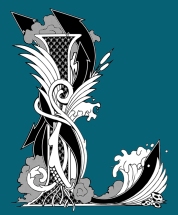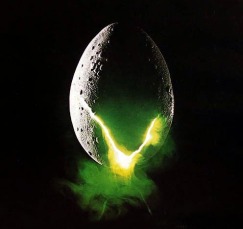It’s been a while, dear readers, but I’d like to welcome you back to my Vocabulary Series! This week, we’re going to look at some magnificently marvellous words beginning with the letter M.
The first M word this week is brought to you by one of my favourite bloggers, Michael of Hypothetically Writing. This is one of his favourite words and it’s a great one.
Marina (noun)
Etymology: First appears in 1805, meaning “a promenade by the sea.” Comes from the Spanish and Italian marina, meaning shore or coast, which comes from the Latin marinus meaning “of the sea.” Its modern meaning as a dock or place with moorings for yachts and small boats come from 1930s American English.
Definition: A specially designed dock or harbour with moorings for pleasure boats, etc.
Example: The miniature monsters moored their motorboat at Marvin the Mega-monster’s marina.
~~~
This next word is a fantastically fancy way of calling someone a liar. I love it and encourage you to use it whenever the opportunity presents itself.
Mendacious (adjective)
Etymology: First appears in the early 1600s. Comes from the Middle French mendacieux, which comes from the Latin mendacium, meaning a lie, falsehood, or untruth. Mendacium comes from the Latin word mendax, meaning lying or deceitful, which in turn comes from Proto-Indo-European root mend-, meaning physical defect or fault.
Definition: Not telling the truth; lying; being false
Example: That mendacious puppet is at it again—no, Pinocchio never staked a vampire with his nose.
~~~
Not only is this week’s bonus word a gorgeous word to say, but it also happens to be the name of a truly fantastic movie.
Memento (noun)
Etymology: First appears around 1400 in Psalm cxxxi of the Canon of the Mass, which begins with the word Memento and commemorates the dead. Comes directly from the Latin memento, meaning remember, which is the imperative form of meminisse, meaning to remember, recollect, or think of. Related to the Latin word mens, meaning mind, understanding, or reason. Its modern usage to refer to a keepsake was first seen in 1768.
Definition: An object kept as a reminder or souvenir of a person or event.
Example: Millicent stroked her memento of Marcus, wondering if she should have kept an ear instead.
~~~
As always, etymological information and definitions come from a combination of the Oxford Dictionary of Etymological English, the Oxford Dictionaries Online, and the Online Etymology Dictionary.
—————————————————————————————
Image credit: Google Images




